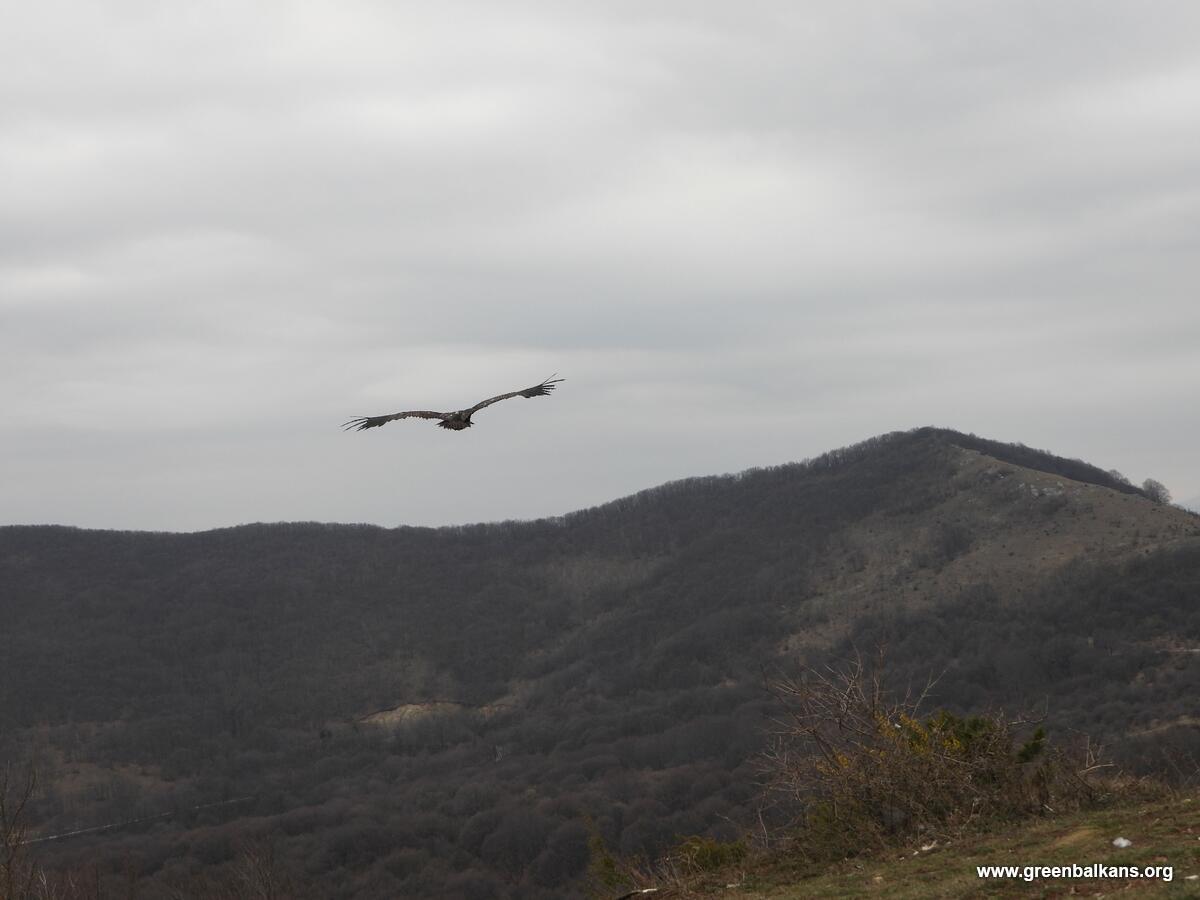A total of 7 griffon vultures – four adults and three young – and 11 black vultures have been fitted in the last few months by the LIFE Re Vultures team with tags, to study their dispersal and movements, and identify threats.
This is one of the actions within the LIFE project “Conservation of Black and Griffon vultures in the cross-border Rhodope Mountains”, led by Rewilding Europe in partnership with Rewilding Rhodopes Foundation, Bulgarian Society for the Protection of Birds, WWF Greece, the Vulture Conservation Foundation and the Hellenic Ornithological Society.
The project aims to recovery and further expand the black and griffon vulture populations in this part of the Balkans, mainly by improving natural prey availability and reducing mortality factors such as poaching, poisoning and electrocution and collision with power lines.
Although black vultures are increasing in Western Europe (Portugal-Spain-France), there is only one colony left in the whole of the Balkans, in the Dadia Forest, in the Greek part of the Rhodope Mountains. This project will serve to enhance the conservation of this population, and will also contribute to the conservation of the main griffon vulture colonies in Bulgaria.
To achieve this, many actions are being implemented, including tagging of vultures, increasing their food availability through releases of wild ungulates and the establishment of supplementary feeding points, creating a trained dog unit to locate poison baits, and insulating power line poles and mounting bird diverters to avoid collision.
The griffons were fitted with satellite transmitters last summer near the breeding colony at Madzarhovo in the Bulgarian Rhodope Mountains. One young bird already undertook a long journey to the Middle East (see map), but unfortunately another juvenile was found dead in Turkey.
On the other hand, the black vultures were trapped and tagged in Dadia National Park – home to the only breeding colony of the black vulture in the Balkans; some 20 – 30 pairs breed yearly in the Greek part of the Rhodopes. Supporting the establishment of new (satellite) colonies of the Dadia colony might help the species to increase and reduce risks.
The LIFE Vultures project aims to equip 20 black vultures and a similar number of griffon vultures with satellite transmitters. Besides transmitters, birds are also marked with colour rings and numbered wing tags, to be able to track these individuals visually as well.
The Bulgarian part of the Rhodope Mountains is an important part of home range of black vultures breeding in Dadia, but also a possible site where immature birds may settle and start breeding. The tracking information will help the team to identify suitable places for building artificial nests on the Bulgarian side, stimulating birds to start another colony here. Last year the team constructed the first three artificial nests to attract the birds, placed in locations identified by computer models, based on current knowledge. New information that will come from the satellite transmitters is now feeding the computer models to identify potential breeding locations.
Over the last few months several black vultures – 5 at a time – have been seen in the Bulgarian Rhodopes, usually in the supplementary feeding points established by the project, and at least three of the tagged black vultures have also visited the country.



